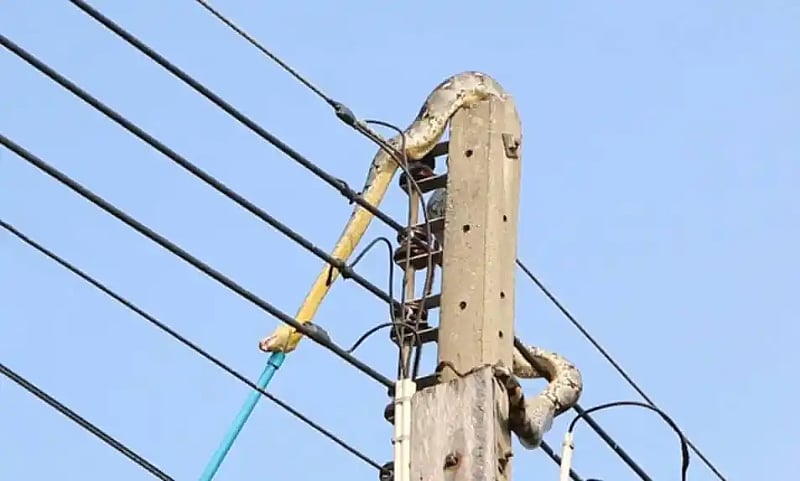The June 11, 2025 power outage in Ghana’s Ashanti Region, caused by a snake infiltrating a substation, underscores a persistent yet often overlooked vulnerability of power infrastructure: wildlife interference. While this particular incident, resulting from the snake bridging the connection between the Akyawkrom 2 feeder line and the ground at the Kwaso substation, was resolved swiftly, it serves as a potent reminder of the broader challenges posed by animals interacting with electrical systems. The Electricity Company of Ghana (ECG) has identified snakes and birds as primary culprits, highlighting their potential to trigger system shutdowns and disrupt power supply. This incident emphasizes the importance of implementing robust wildlife mitigation strategies to safeguard the reliability of the power grid.
The ECG, recognizing the recurring nature of these wildlife-related disruptions, has adopted a proactive approach towards enhancing its infrastructure and mitigating these risks. Rather than reacting to incidents after they occur, the company is investing in preventive measures designed to deter animals from accessing critical electrical installations. These measures encompass physical barriers like snake guards to prevent reptiles from reaching sensitive equipment, improved sealing of cable entry points to block access for smaller creatures, and regular clearing of vegetation around substations to eliminate potential habitats and hiding places. This proactive strategy aims to minimize the likelihood of animal-induced outages and bolster the overall resilience of the power grid.
Beyond physical infrastructure improvements, the ECG acknowledges the crucial role of community engagement in safeguarding the power supply. Recognizing that local residents are often the first to observe unusual activity near electrical installations, the ECG is actively encouraging public reporting of such occurrences. This collaborative approach empowers communities to act as the first line of defense, enabling swift intervention by the ECG to prevent potential disruptions before they escalate into widespread outages. By fostering a sense of shared responsibility, the ECG aims to leverage the vigilance of local communities to enhance grid stability and minimize the impact of wildlife intrusions.
The ECG’s response to the recent snake-induced outage goes beyond immediate restoration of power. It signifies a broader strategic shift towards integrating ecological considerations into power grid management. The incident has spurred the company to expand its investments in ecological barriers, recognizing that such measures are essential for long-term grid resilience. This includes not only enhancing physical barriers but also implementing environmentally sensitive practices that minimize the attractiveness of substations to wildlife. By addressing the root causes of animal intrusion, the ECG aims to create a sustainable solution that protects both the power infrastructure and the surrounding ecosystem.
The incident highlights the often underestimated vulnerability of critical infrastructure to seemingly minor ecological factors. While advanced technologies and engineering solutions play a vital role in ensuring power grid stability, the snake intrusion demonstrates that seemingly small, natural occurrences can have significant disruptive consequences. The ECG’s response underscores the importance of adopting a holistic approach to grid management, incorporating both technological advancements and ecological considerations. By recognizing the interconnectedness of the power grid with the surrounding environment, the company aims to build a more resilient and sustainable system.
The proactive measures being implemented by the ECG, including physical barriers, habitat modification, and community engagement, represent a comprehensive approach to tackling the challenge of wildlife interference. While the snake at the Kwaso substation caused a relatively brief outage, the incident has served as a valuable lesson, prompting a renewed commitment to wildlife mitigation strategies. By investing in preventative measures and fostering community partnerships, the ECG strives to minimize future disruptions, ensuring a stable and uninterrupted power supply for the Ashanti Region and beyond. The incident underscores the importance of considering both technological and ecological factors in power grid management to achieve long-term resilience and sustainability.


